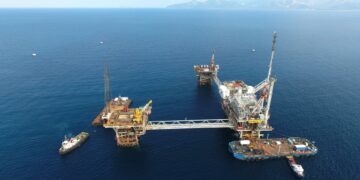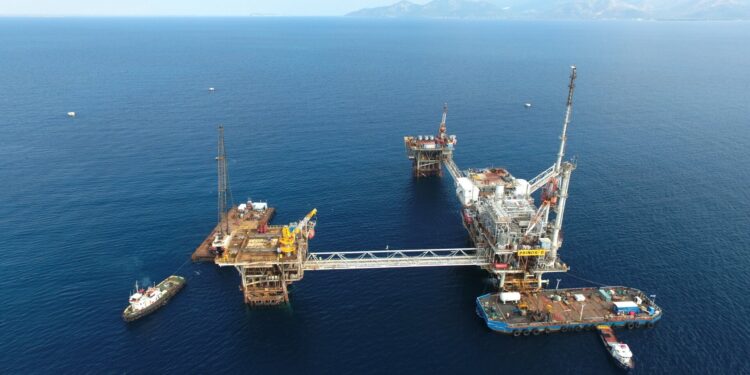The recent signing of three additional non-binding Memoranda of Understanding (MoUs) underscores growing interest in the Greek market regarding the CO2 storage facility in Prinos.
Energean has announced that the project is progressing, with 15 companies showing interest in using the planned facility for storing carbon dioxide generated during their production processes.
The latest participant is Kavala Solutions, a fertilizer company, which has indicated a non-binding interest in storing 250,000 tons of CO2 annually.
This demand surpasses the infrastructure’s capacity, even post-development phase two, as the total anticipated demand reaches 6.12 million tons per year while the Prinos facility can accommodate a maximum of 4 million tons.
Moreover, additional CO2 storage capacity is needed since emissions from refineries and cement plants alone amount to 4 million tons annually, completely utilizing Prinos’s capacity once fully developed. Market experts, speaking to “N,” estimate that Greece’s CO2 storage requirements are around 13-14 million tons.
These figures do not include potential “emitters” from neighboring countries that might be interested in sending liquefied CO2 to Prinos, especially given the limited regional infrastructure. A recent company announcement revealed that the Public Consultation on the Environmental and Social Impact Study has concluded, with favorable feedback from involved stakeholders. The decision regarding Environmental Approval and the Storage Permit is anticipated in the coming months.
Initial funding from the Recovery and Resilience Fund (RRF) and the Connecting Europe Facility (CEF) is expected soon. Additionally, the company plans to drill four new wells in 2026, as the existing wells at the site cannot accommodate the injection of liquefied CO2 from the emitters in Prinos.
Given this context, there is an urgent need to expedite procedures, with the primary concern being the establishment of an institutional framework that will facilitate effective project design within a specific timeline. In the interim, the company intends to conduct a non-binding market test this year, aiming to commence the project in 2027.
Block 2 and West Africa
Another topic of interest is the future of Block 2, where the company has initiated the search for a strategic partner to advance to the third exploration phase, specifically the exploratory drilling stage.
The company has obtained an extension to complete the second phase by March 2026, at which point it must decide whether to move forward with exploratory drilling. According to reliable sources, the concession is attracting interest from other companies in the sector, which are reviewing the 3D survey data; however, no concrete commitments have surfaced thus far.

















